
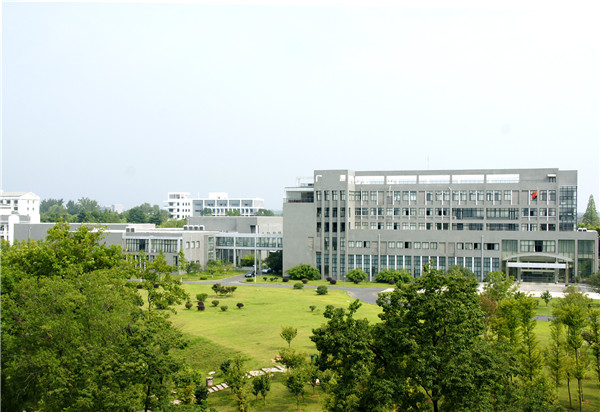
The Science Island of the Hefei Institutes of Physical Science is home to more than 2,400 scientists from all over the world. (Image by China Daily)
A major Chinese research center is attracting top researchers from around the world.
A device called a tokamak that holds hydrogen plasma hotter than the core of the sun. Spectrometers that direct lasers to monitor atmospheric pollution. Magnetic-field generators that are tens of thousands of times stronger than a fridge magnet.
These are just some of the mind-boggling projects on the Science Island of the Hefei Institutes of Physical Science, a branch of the Chinese Academy of Sciences.
The island, a 2.65-square-kilometer peninsula surrounded by the Dongpu Reservoir in the northwest of Hefei, Anhui province, is home to 10 research institutes, dozens of key laboratories and more than 2,400 scientists from across the world.
The area boasts a community of its own. A small farmers market opens at 6 am daily. Bus 903 runs every half hour from the peninsula to the city. There is also a school for first to 12th graders, who are greeted by a banner on the gate that reads: "Study with scientists."
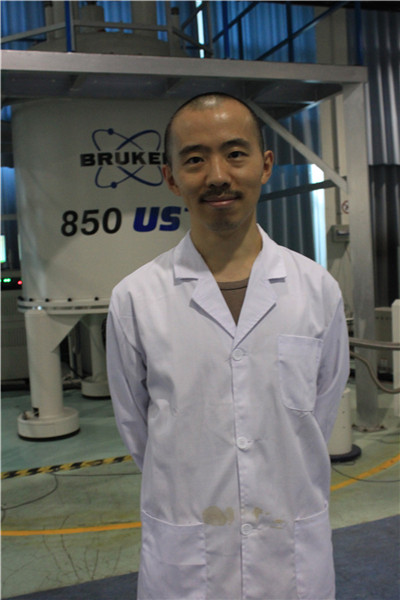
WANG Wenchao, molecular biology researcher. (Image by China Daily)
First contact
When WANG Junfeng, 48, first heard of Science Island in 2009, he had been doing post-doctoral research in Harvard Medical School for five years.
A stable, high-magnetic field laboratory that was being built on the island piqued his curiosity.

WANG Junfeng, deputy director of the High-Magnetic Field Laboratory. (Image by China Daily)
"Nineteen Nobel Prizes have been given to research related to magnetic fields since 1913," says WANG. "It is a key to the treasure chest of new scientific discoveries."
From 1995 to 2001, WANG was earning his doctorate at the National High Magnetic Field Laboratory in Florida, the United States, which currently boasts the strongest magnet on Earth.
The laboratory on Science Island was aiming to usurp that position. The news excited WANG, and he flew to the place to see it with his own eyes.
It just so happened that KUANG Guangli, the director of the High-Magnetic Field Laboratory, was urgently seeking scientists who could make full use of the facility once it was completed. The two of them met.
"KUANG is a charismatic leader," WANG recalls of his first meeting with the director. "And he values talent."
After a long talk with KUANG and a tour around the peninsula, WANG called his wife in Boston that night and told her that he wanted to work on the island.
A month later, WANG returned with his wife and two children.
"I could still remember that day. It was Aug 2, and we flew 13 hours from Boston to Shanghai, carrying 12 pieces of luggage," says WANG.
Two colleagues from the lab picked them up at the airport in Shanghai and drove six hours to Hefei.
It was past midnight when WANG settled down in an apartment rented for them.
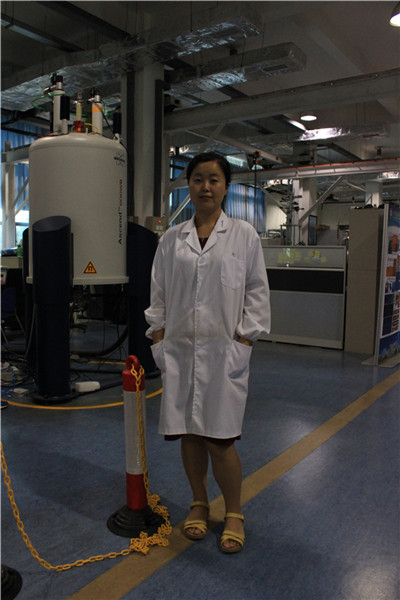
ZHANG Xin, cell biology researcher. (Image by China Daily)
Getting teammates
The high-magnetic field laboratory has two research tracks: life sciences and material physics. WANG was appointed to head the life sciences department shortly after he joined the lab.
WANG needed to put together a team and he soon thought of LIU Qingsong, who went to Harvard Medical School in 2006, two years after WANG.
With his background in chemistry, LIU, 39, did post-doctoral research on medicine at Harvard. He later became a researcher at the Dana-Farber Cancer Institute in Boston.
WANG told LIU about the lab. LIU organized a group of Chinese scholars to return to China.
In 2010, the group first visited universities in Shanghai. They then boarded a high-speed train to Hefei and headed for Science Island.
"We also met KUANG, and he told us about his return from Germany when he was 32 to build China's own tokamak, the nuclear-fusion installation," says LIU.
"He told us that they worked on it for three years but failed. But they didn't give up and succeeded one year later.
"I was truly inspired by KUANG. And I thought that this is the place to make things happen."
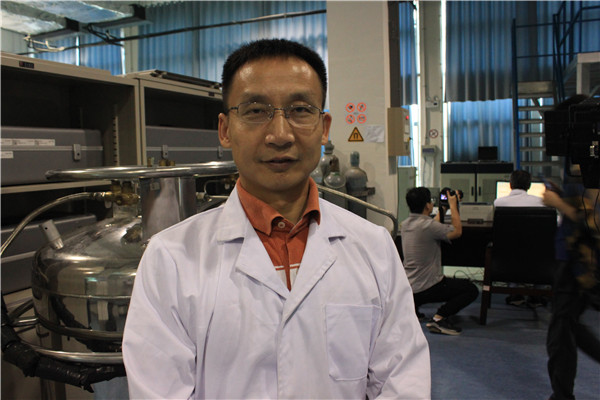
LIN Wenchu, head of the laboratory-animal center. (Image by China Daily)
After returning to Boston, LIU spread the news about Science Island and looked for other candidates whose research fit the lab's life science department.
LIU first told his wife, LIU Jing, who was his classmate in Nankai University in Tianjin.
She was also a post-doctoral researcher of chemical biology at Harvard.
The two went to the U.S. for doctoral studies in 2001, but they were in different universities. They got married in 2009 when they finally settled down in Boston.
"We were apart in different cities for half of the decade in the U.S., so we didn't plan to separate again," says LIU Jing.
When she knew her husband was serious about moving to Hefei, she started preparing to do so as well.
LIU Qingsong also tracked down his Harvard friends who were in specialized, exciting fields: ZHANG Na, an expert on using nuclear magnetic resonance to study RNA molecules; ZHANG Xin and Wang Wenchao, a couple researching cell biology; LIN Wenchu, who specializes in cancer research using mouse models; and REN Tao, who focuses on high-throughput screening for new drugs.
LIU Qingsong told them about the opportunities offered by the lab and received positive responses.
One after another, they all passed the lab interviews and arrived on Science Island by the end of 2015.
The plan at the lab is finally being realized. The areas of focus range from molecular research to drug discoveries and testing.
The scientists are all conducting biological experiments in the high-magnetic field.
The aim is to identify the working mechanisms of some cancers so that effective drugs and therapies can be developed.
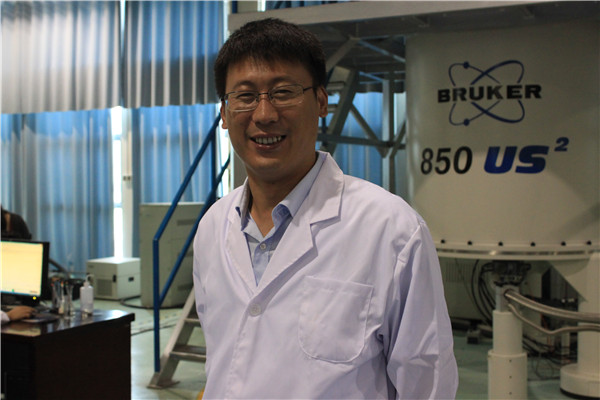
LIU Qingsong, deputy head of the life science department. (Image by China Daily)
Maintaining ties
During the 1990s and early 2000s, many students at top Chinese universities were expected to study overseas at some point.
When ZHANG Xin and WANG Wenchao studied medical science at Beijing Medical University, which became part of Peking University in 2000, pursuing a doctorate in U.S. or European universities was a major trend.
"At that time, 'foreign countries' was a synonym for 'advanced'," says ZHANG Xin. "Only about three students in our class of 26 didn't go abroad."
ZHANG Xin and WANG Wenchao got married before they went to study at Indiana University in the U.S. in 2001. After earning their PhDs, they went to do post-doctoral work at different research affiliates of Harvard Medical School.
"Working at Harvard, my path was more or less set," says WANG Wenchao. "But back in China, I saw more possibilities."
They were also afraid that their children might lose touch with their Chinese background if they stayed in the U.S..

REN Tao, researcher of high-throughput screening of new drugs. (Image by China Daily)
Students were asked to hold their national flags at an "international day" event at their daughter's school. But ZHANG Xin found that her daughter could not identify China's flag.
And when she spoke to her daughter in Chinese at home, the girl would always reply in English.
"Now her Chinese has improved, and she can recite many Chinese poems," says ZHANG Xin.
ZHANG Na headed for Brigham Young University in Utah in 1996 to earn his master's, before going to Cornell University's Weill Cornell Medicine school in New York for doctoral studies in 1998.
During U.S. presidential elections, he usually found himself debating with people about issues regarding China.
"Presidential nominees always fight for votes by raising unfair arguments about China. So I had to speak up for my country," says ZHANG Na.
"For that reason, I always read news about China online. So when I argued, I argued with facts and evidence."
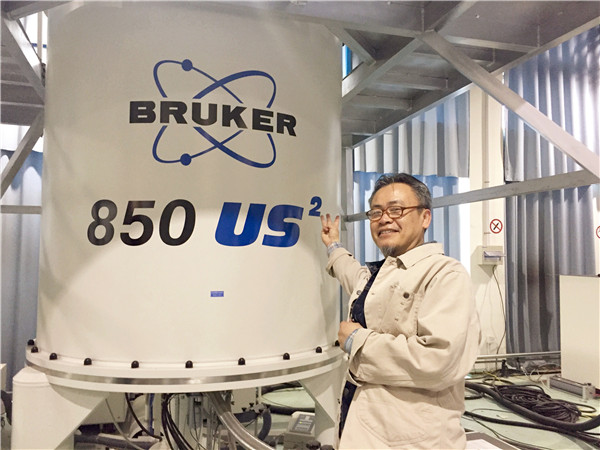
ZHANG Na, structural biology researcher. (Image by China Daily)
New trends
China's rapid economic growth and the broader opportunities offered by its development have become strong pull factors for overseas Chinese students and scholars.
More than 3.22 million Chinese students completed their studies abroad between 1978 and the end of last year, with 2.65 million returning home to find jobs, the Ministry of Education reported in March.
"When I went abroad, the economic gap between China and the U.S. was big," says REN Tao, who went to University of Nebraska-Lincoln to study microbiology in 1997. "But things change gradually."
REN later went to work at Harvard Medical School. He noticed more praise for China from his foreign colleagues over the years.
REN recalls that during the 2008 Beijing Olympic Games, he projected the live broadcast of the opening ceremony on a conference room wall.
"As Chinese gathered to watch the broadcast, some Americans joined us, and they were amazed by the grand ceremony," says REN. "We felt so proud of our motherland."
REN spent 18 years living in the U.S. before returning home in 2015. His time abroad also made him a good cook.
"I had an easy and comfortable life in the U.S., but I always felt that I didn't make full use of my knowledge," says REN.

LIU Jing, chemical biology researcher. (Image by China Daily)
"So when I learned that mass entrepreneurship and innovation were becoming a trend in China, I was eager to be a part of it."
With the experience he gained in academia and business during his studies in the U.S., Ren joined LIU Qingsong's team as the manager of their medicine startup founded in 2015.
The company has 20 new potential drugs against diseases, including leukemia, lung cancer and lymphoma. Some are about to enter clinical tests.
"In our 70-strong team, 25 are returnees from abroad," says REN.
LIN Wenchu received his PhD from the University of Texas in 2006. He worked at Harvard Medical School and the Dana-Farber Cancer Institute before returning to China in 2013.
"Many people thought that my career was stable in the U.S. and asked me why I came back," recalls LIN. "But I always wanted to have my own lab and do my own research, and I got the opportunity here."
LIN, who specializes in cancer research using mouse models, created a laboratory-animal center on Science Island in 2014.
Last year, he set up a company that aims to develop new diagnostic methods and therapeutic strategies for personalized cancer care.
"It's been done in two years, and that would be impossible if I were in the U.S.," says LIN.
He has also recruited two scientists from overseas-one from the U.S. and the other from Germany.
"I post the jobs online and receive applications from around the world," says LIN. (China Daily)

86-10-68597521 (day)
86-10-68597289 (night)

86-10-68511095 (day)
86-10-68512458 (night)

cas_en@cas.cn

52 Sanlihe Rd., Xicheng District,
Beijing, China (100864)

